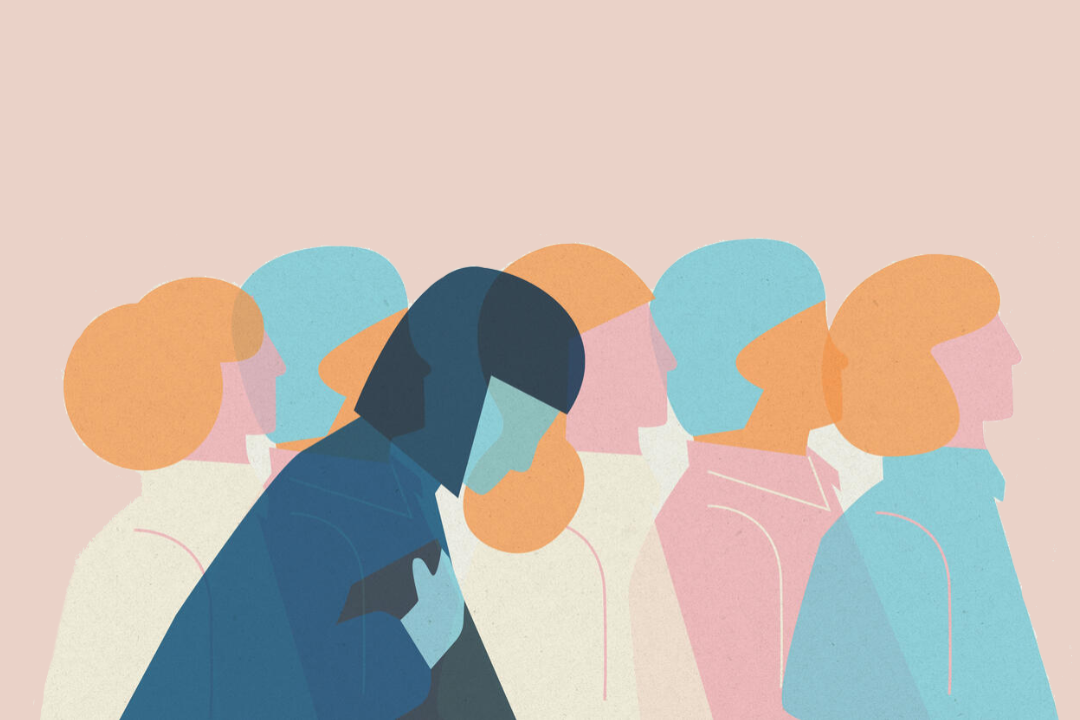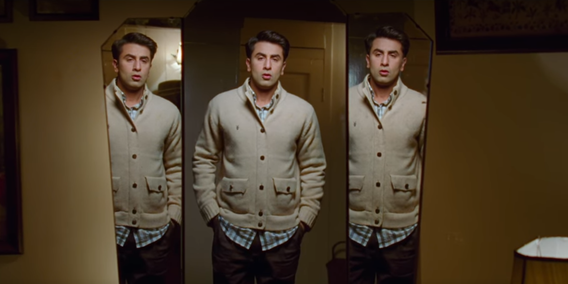The other day, I was sitting in an autorickshaw, stuck in traffic and supremely irritated because of the heat wave. But here’s the thing, when you are in an autorickshaw, you inadvertently observe everyone going on with their daily life. So naturally, even I was just observing when I noticed something odd. An underserved man, who was standing on the side of the road, seemed to be engaged in a heated conversation with himself while everyone else on the road was consciously avoiding him. It only got worse when people started giving him judgmental looks and pointed fingers at him while conversing with each other in hushed tones. So now I was even more irritated: the heat coupled with watching people judge someone who may be experiencing a mental health concern.
If a loved one (or anyone for that matter), comes up to us and tells us that they have terminal cancer, our usual response will be to express extreme concern and we may even like to know the details of their diagnosis and treatment journey. We may try to offer all the help that we can and ensure that the said person is comfortable and feels involved in daily life. While this is great and heartwarming to watch, my question is why can’t we extend the same courtesy to someone who has been diagnosed with a mental health concern? Mental health concerns also interfere with an individual’s social functioning, interrupt their work and may be life-threatening. This is WHO’s definition of health: a state of complete physical, mental and social well-being and not merely the absence of a disease or infirmity. And somehow, mental health still gets neglected.
So why can’t we as a society accept them?
This immediate response of fearing and ignoring the concern is present in almost every social set up. In family functions, the member with a mental health concern is not welcomed or worse, is asked to stay at home because their presence makes others uncomfortable. A new mother who may be showing clear signs of postpartum depression is called selfish or cold-hearted because she may not be able to prioritize and understand the baby’s needs. Similar interactions such as these may take place at school, the workplace or even in a hospital.
We ignore, we ostracize and we refuse to go with the individual to a mental health professional. We try to pin the blame on someone, either the individual or their family and other members of the social group. Even a chain smoker with a lung cancer diagnosis may not be blamed for their health as much as someone experiencing depression, anxiety or any other mental health concern tends to get blamed. We get so scared of facing the reality of the situation that we may not want our loved one to get the help that they deserve. Do we not realize that avoiding the situation may affect their self-perception? If we do not provide them with support or pretend that everything is okay, they aren’t not going to notice that they may be having different experiences than others. Instead they may just perceive themselves as being stupid, sad, scared or unlovable which can be avoided if they are provided with the understanding and support (and if possible, the help) that they deserve.
I understand that the mental health system in our country is not the best and there is a lack of awareness about affordable resources. But then we are left with two options; either we bitch about how the system is messed up or we can just go ahead and be a decent human being by expressing support and humanity. I’m not saying social support and understanding will cure the concern, for that we will always require the services of a mental health professional but it will most likely alleviate the distress of the person. I understand that it may be difficult to separate the concern from the person when it is intertwined with their behavior. However, it is not reason enough to neglect their reality which is neither their choice nor an attention-seeking tactic. So we should try to talk to them, understand them and try to get in touch with the professional help that they may want. There are a few accessible and affordable organizations, hospitals and even individual practitioners; we may just need to put in that extra effort to contact them like we would when any of our loved ones may be facing a complex physical health concern.
Just think about it, what happens when we ignore an open wound? It gets infected and leads to further complications, right? The same thing happens when we ignore a mental health concern. Just because we can’t always physically see it, does not mean that it’s not there and the more we pretend that it doesn’t exist, the worse it may get.
Always remember, out of sight does not always mean out of mind, especially in the case of mental health concerns which are, in a way, related to the mind.
mental health awareness in India mental health awareness in India







